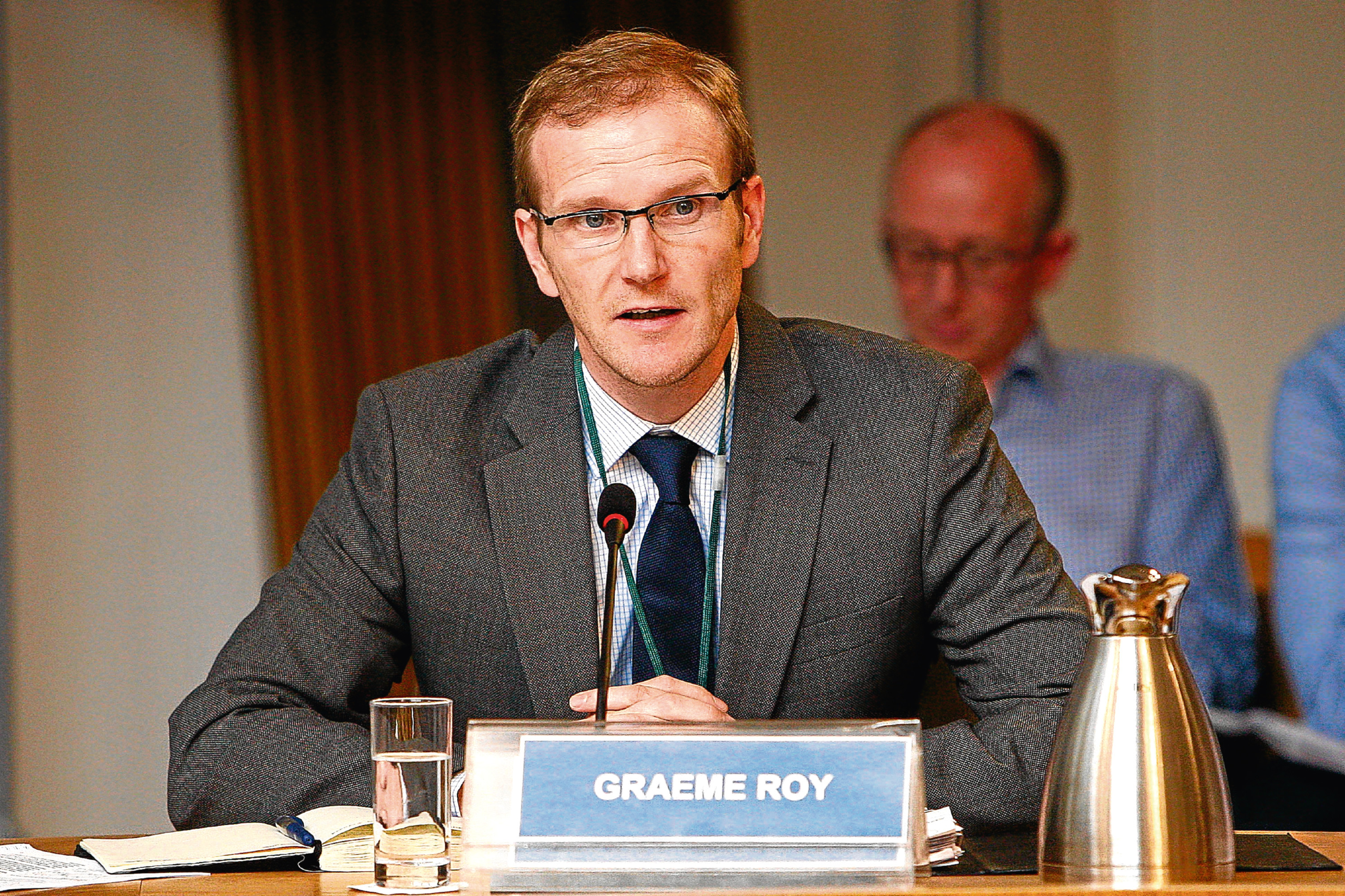The impact of coronavirus on the Scottish economy could be twice as devastating as the financial crash, it was predicted yesterday.
Foremost economist Professor Graeme Roy, director of the Fraser of Allander Institute based at Strathclyde University, said it would take years for the economy to recover from the “unprecedented shock” caused by the pandemic.
He warned the impact of the outbreak would be “much bigger” that then 2008-9 financial crash which caused thousands of businesses to fail, unemployment to soar and property prices to plummet.
Scotland’s economy contracted by 4.5% over a period of five quarters between 2008 and 2009.
Mr Roy said his best prediction for the impact of Covid-19 would be a “high single digit or even double digit” hit to the economy over the next year.
Scotland’s gross domestic product (GDP), the most common measurement of economic output, was £164 billion in 2018, or £175bn including the share of North Sea activity.
Putting these figures into context, a £17bn hit to the economy would be the equivalent of the entire Scots whisky industry being wiped out three times over or a third of the Scottish Government’s budget being lost.
Mr Roy said: “The large-scale mothballing of our economy in response to the public health emergency is unlike anything we have seen since World War II.
“Businesses and policymakers always knew that a global pandemic represented a major risk to our highly integrated global economy. But the pace at which this crisis has escalated has caught many off-guard.
“Assuming that the public health emergency will pass in the coming months, the hope of many is that that the economy should come out the other side with only a limited hit to its long-term productive capacity.
“But this is looking increasingly overly optimistic. The scale of the shutdown in our economy is so large it will take months, if not years, to recover.
“The economy that emerges from this, from the shops on our high street through to day-to-day working practices, is likely to look quite different.
“It will be much bigger impact than the financial crisis.
“Many businesses are facing a total collapse in activity. We’re looking at high single digit – or even double digit – hit to GDP over the year but trying to put an exact estimate on this is almost impossible.”
The independent research institute said services that relying upon social spending, such as the tourism and hospitality sector, including, hotels, cafes and restaurants were “particularly exposed”.
This may have a disproportionate impact upon rural communities in Scotland, where smaller businesses and high numbers of self-employed people are prevalent.
The FAI also highlighted the impact on jobs and household incomes, with many families lacking sufficient savings to cover their bills for an extended period of time.
The Institute states that only 42% of Scottish households in the bottom income decile would be able to cover one month of their regular income from savings.
Around three quarters of households in the bottom decile would not have a sufficient buffer if they had to forgo regular income for six months.
Mr Roy added: “The economy that will emerge from this will look quite different and not just because many businesses may struggle to survive.
“How individual sectors and businesses will adapt over the next few months – from retail through to universities – will change behaviours forever.
“The government’s response to the public health crisis is arguably the first step on a new social partnership between the state and business, perhaps unlocking a much broader conversation about inequalities and sharing the proceeds of growth more evenly across society.”
